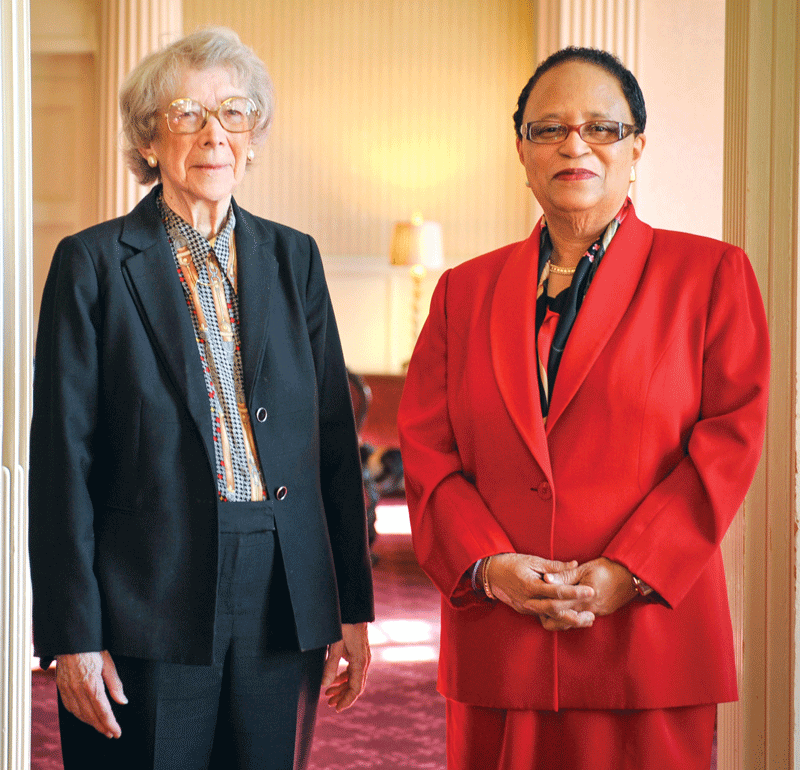Vassar Inaugurates: New Science, Technology, and Society Lecture Series
On April 2, Shirley Ann Jackson, president of Rensselaer Polytechnic Institute (RPI), delivered the inaugural address in the Pauline Newman ’47 Distinguished Lecture in Science, Technology, and Society series.

Early in her career, the Honorable Pauline Newman ’47, who endowed the lecture, worked in research, patent law, and policy work. Since 1984 she has served on the United States Court of Appeals for the Federal Circuit. As a jurist, she has authored many important opinions in the field of intellectual property and patent law and has been involved in decisions that have bridged issues of importance for government, business, and academia.
Jackson, whose institution is preparing its graduates for many of the challenges faced in these fields and others, delivered the lecture, “The New Polytechnic: Addressing Global Challenges, Trans-forming the World,” focusing on the need for institutions of higher learning to reanimate the idea of a liberal arts education in order to address complex and interconnected global challenges.
"The new polytechnic," she said, "is predicated on the absolute necessity of educating our students in multidisciplinary and collaborative thinking, and linking our researchers in the arts, architecture, the humanities, the sciences, and the social sciences, as well as in engineering and
the applied sciences.
“Collaborations on a grand scale, enabled by technology, can solve widespread problems,” said Jackson, noting that forward-looking research initiatives at RPI are underway to address the greatest challenges of humanity in energy, water, and food security; national and global security; human health; climate change; and the allocation of scarce natural resources.
One such regional collaboration is the Jefferson Project—a partnership between RPI, IBM, and the FUND for Lake George—created to ensure that human encroachment does not cloud the lake’s famously clear water. The partners are “turning Lake George into the ‘smartest’ lake in the world,” Jackson reported. Advanced sensors have been placed throughout the lake to measure factors influencing the body of water, and a new data-visualization laboratory helps researchers fully picture the watershed’s systems and interactions. The multidisciplinary project not only involves biologists and computer scientists, but new media artists and videographers, as well.
“In the end,” said Jackson, “the Jefferson Project will inform and undergird public policy about watershed issues, fresh-water systems, and overall environmental stewardship—where science, technology, ethics, regulation, and policy formulation all come together. This is precisely where and why interdisciplin-ary and multidisciplinary approaches
are critical.”
Jackson was the first African American woman to receive a doctorate from the Massachusetts Institute of Technology. A theoretical physicist, she has had a distinguished career that includes senior positions in academia, government, industry, and research. In 1999, Jackson was chosen as president of Rensselaer Polytechnic Institute. During her tenure, she has positioned RPI as a global leader in research and technological innovation.
